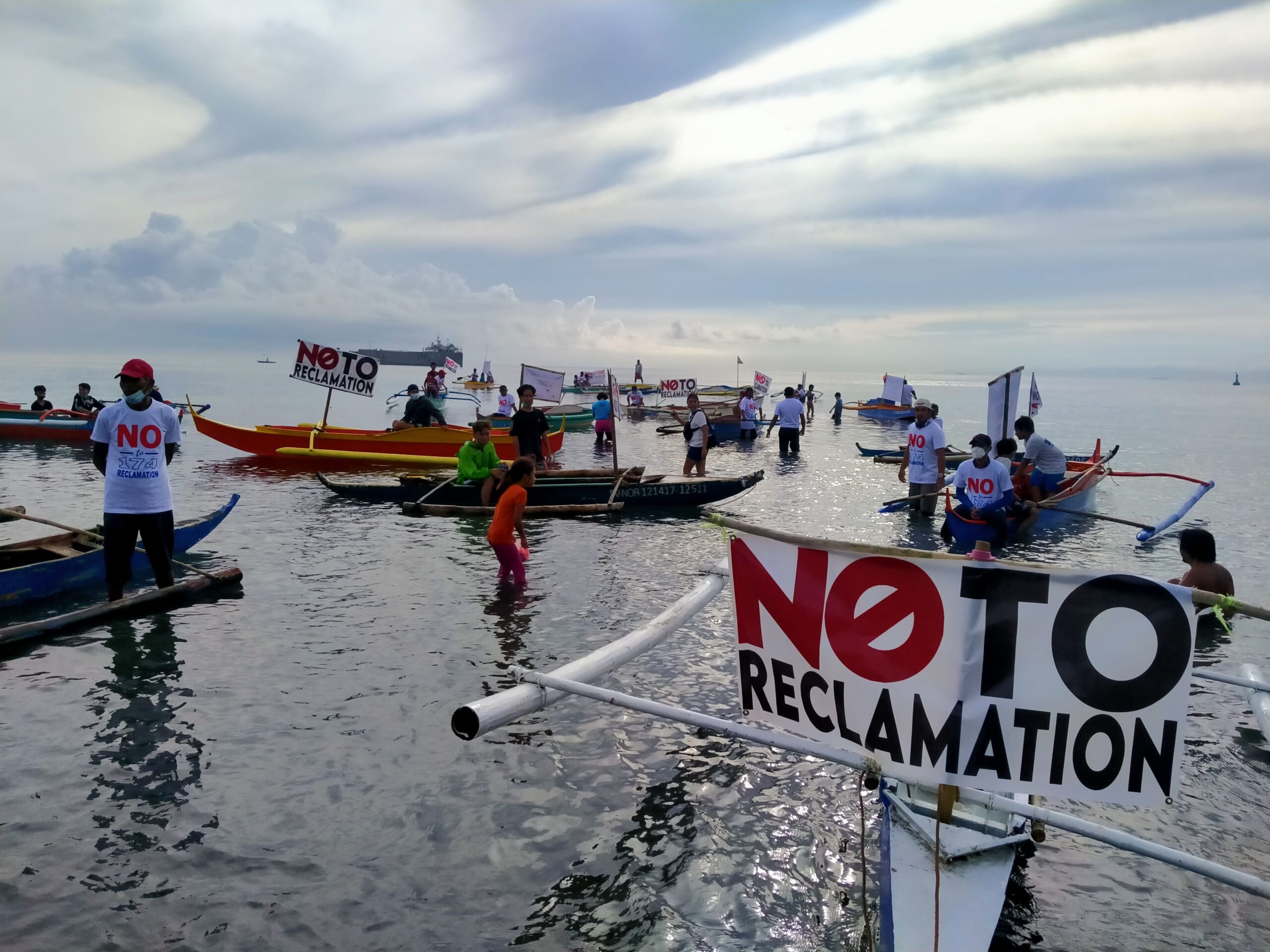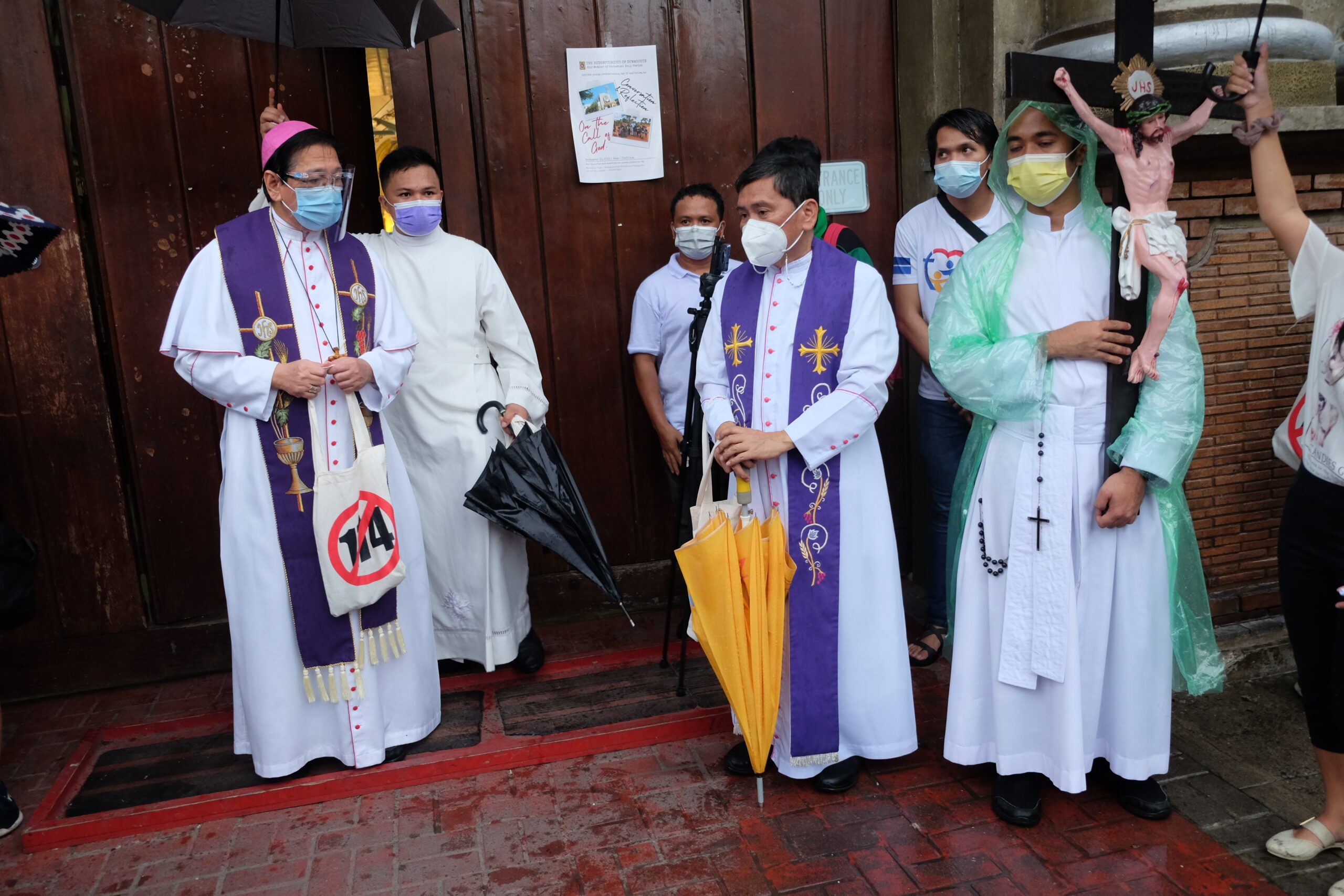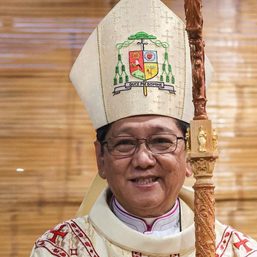SUMMARY
This is AI generated summarization, which may have errors. For context, always refer to the full article.

NEGROS ORIENTAL, Philippines – At four o’clock in the morning, fisherfolk prepare their nets and carry their small boats toward the coastline – ready to paddle in the pitch dark for a day’s catch.
By sunrise, kids, seniors, and families flock to the beach and the boulevard to go for a quick jog, a swim, a view of nature, or a cup of coffee before work begins.
When the sun sets and the city goes deep into the night, lovers and friends frolic by the seawall to catch some shellfish or enjoy conversations and meals by the food stalls.
This is a snapshot of the coastal Dumaguete City, where life leads to and flows from the sea: quiet, simple, and unassuming.
A proposed 174-hectare Smart City reclamation is, however, threatening to alter the life of locals. They decry the project – a joint venture between the city government and a private company – for being abrupt and lacking in transparency.
While the agreement was supposed to be signed in July 2021, the local government eventually bowed to public pressure as a loose, organic, and relentless movement has emerged, determined to defend their home city.
Unfazed by the pandemic and the personal costs of opposition, which has caused division in the tight-knit community, concerned residents know the fight continues, if a permanent ban on reclamations and for more environment-friendly policies are to be put in place.
With Mayor Felipe Antonio Remollo, who pushed for reclamation, running for reelection in May 2022, a people’s coalition is actively campaigning for good governance to effectively stop the project and seal the city’s equitable future.”
Coming together
Gary Rosales, a long-time banker and environmentalist, had heard of the idea of a reclamation in Dumaguete City several months before its public outing on July 7, 2021. Despite this, the news of the reclamation and its scale largely shocked him, pushing him and a close bunch of Dumagueteño environmentalists to quickly mobilize their opposition to the project.
Three days after the city council session revealed the proposal, the “No To 174 Dumaguete” coalition was formed, with committees on public pressure, legal, and science. Rosales, who didn’t have experience in mass organizing, became the group’s designated spokesperson and immediately called his boss to ask permission for a one-week leave.
“Tinatanggap ko ’to kasi I know it’s a moral obligation. It’s something that is also called by my faith na ’pag may mga ganitong [gawaing] hindi na tama…I have to take sides. Kasi masasanay sila (government officials) [sa paglaktaw sa mga batas at tao],” said Rosales, who had also been a witness to other controversial environmental issues in the city, such as the Pantawan 2 reclamation that faced less resistance.
(I’m accepting this duty because I know it’s a moral obligation. It’s something that is also called by my faith. When there are wrongful acts, I have to take sides because [if we don’t resist now] government officials would be brazen to repeat overriding the rule of law and their constituents.)

Among the coalition’s first steps was creating a Facebook page, releasing a statement by scientists, and organizing a petition signing by the Rizal Boulevard on July 11, 2021, a day before the project was reportedly due for a joint venture agreement (JVA) signing.
“All we wanted was really just to give an initial response from the community. It didn’t matter to us [how many will sign],” said Rosales. He was referring to the 384 signatures gathered in protest of the Smart City venture due to the project’s environmental impacts and the lack of consultations with the community.
Rosales delivered the petition to the city hall the following day. No JVA signing for the project took place, as sectoral opposition – including the Church, fisherfolk, and youth – grew in Dumaguete.
Community investigations
The following weeks proved to be crucial as the reclamation project became a hot topic at the city council. In one of the sessions, lawyer Golda Benjamin presented facts and legal loopholes about the issue, further causing an uproar from the community.
Benjamin’s involvement in the movement began after she checked the background of the proponent, EM Cuerpo Inc. (EMCI). This was a practice she had been accustomed to, having worked at the Senate blue ribbon committee, which investigates public officials and offices for alleged wrongdoings. Concluding that the company didn’t have the financial capacity to take on the P23-billion project, she dug deeper into the case.
In the wave of secrecy and confusion, Benjamin would regularly post important documents and findings online, soberly informing the public about the project’s gaps and questionable aspects. Soon, Benjamin was being approached by legal experts and receiving anonymous tips, such as the hard copy of EMCI’s first unsolicited proposal, that became helpful in cracking some questions about the project.
“Kahit opposition ka (even if you’re part of the opposition), you have the responsibility to do due diligence,” said Benjamin, who also persistently reached out to the local government officials and concerned national agencies to make the reclamation discussions issue-based.
Overall, Benjamin has worked with a team of 14 volunteer lawyers and researchers to source and examine data, and analyze possible options for the case. This involved some of her law students, who produced a website housing comprehensive information about the Dumaguete 174 issue.
“I’ve never seen Dumaguete this way,” said Benjamin, referring to the people’s overt participation and the “crowdsourced activism” she experienced. “So many people stepped forward and articulated the anger and the science.”
In 2021, for instance, Mayor Felipe Antonio Remollo made the false claim in a media interview that there were no corals in some areas of Dumaguete’s coasts.
“People got angry…[with him] trying to imply that we don’t know what we’re talking about,” said Dr. Rene Abesamis of Silliman University, a well-respected institution for marine scientific studies in the Philippines and worldwide. “We didn’t even have to orchestrate anything. People started to go on their own to show, ‘Look, we’ve been swimming there since we were kids.’”
Abesamis said this was a good response since it directly came from various sectors – including the fisherfolk, free divers, swimmers, and the youth. At the time, rebuttal statements and underwater videos flooded the Dumagueteños’ online feeds.

Dumaguete City has four Marine Protected Areas (MPAs), one of the ways to manage and sustain local fisheries. These would be directly affected by the reclamation, based on the proponent’s original unsolicited proposal. The project area includes the 20-year-old Banilad MPA.
Since marine life belongs to an interdependent network that doesn’t follow political boundaries, Abesamis said that burying the MPAs and eradicating multiple habitats due to the reclamation practices would heavily impact fisheries. He said there would also be social implications affecting the livelihood of fisherfolk and shelter for communities, making the destruction of MPAs a “direct attack to food security.”
Grounding the efforts
While the Smart City issue lost steam after the halted contract signing in September 2021 amid strong public pressure as well as coronavirus restrictions which limited physical protests, individuals and groups carried on with the discussions both in online and offline spaces.
In the past months, teacher and writer Sigrid Gayangos has been working with local writers, artists, and a youth group to produce Lutong Baybay, a Bisaya-English food zine. The publication features a variety of local fish recipes popular among Dumaguete households that will be most affected by the proposed reclamation.
Gayangos has observed that the usual messaging on the 174 issue is on “protecting the laidback environment of Dumaguete” because vulnerable communities often don’t have easy access to interviews and platforms, and have fears of speaking out.
“Laidback lang siya kung moneyed family kayo, kung hindi mo kailangan bumuno every day, kung hindi ka uring manggagawa,” she said. “Blessed with magandang environment ‘yung Dumaguete, pero mahirap ang opportunities [dito].”
(It’s only laidback if you’re from a rich family, if you don’t need to work every day, if you’re not from the working class. Dumaguete’s blessed with a beautiful environment, but opportunities here are hard to come by.)

Prompted by gut issues like hunger, the food narratives hope to be a “conversation starter” on how to develop small-scale communities, particularly when it comes to providing safety nets for fisherfolk and capacity-building for sustainable fishing.
“May strong ties rin ako sa fishing community kasi grandparents from both sides [of my family] were fishermen…at nabuhay at napag-aral ‘yung mga anak sa pangingisda,” shared Gayangos.
(I have strong ties with the fishing community because my grandparents from both sides of my family were fishermen, and they were able to live and pay for their children’s education, thanks to fishing.)
For her, even without personal experience of the struggles, art should be informed of one’s social environment, and platforms – no matter how big or small – can be used to bring positive changes to the immediate community.
Freelance artist Hope Tinambacan and ophthalmologist Frances Yap are two private citizens who chose to tread this path, raising environmental awareness using their social media.
Part of a theater group which also staged creative protests, Tinambacan created humorous TikTok videos on the reclamation issues, appealing to both the local and national audiences. Though he saw the medium as effective in catching people’s attention, Tinambacan said the current challenge for artists was how to come with images on the real impacts of reclamation that would easily connect with the human senses and emotions.
“The people of Dumaguete must be able to experience, must be able to understand not only in their heads but in their bodies, that development can still be sustainable and doesn’t have to be destructive environmentally,” he added.
Yap, also a member of the all-women swimmers and marine conservation group Ocean 6, has never stopped posting daily about the reclamation and promoting environmental education on her Facebook and Instagram profiles since the issue started.
Among her personal efforts, “the self-appointed social media influencer for the No to 174” rigorously monitored city council sessions, transcribing the discussions and creating one-minute information videos to increase the public’s awareness and update them in an easily understandable manner.
“People are relaxing [right now], but I am not,” said Yap, describing how hayahay (laidback) Dumagueteños tended to be. “We cannot let it (reclamation issue) go because we know that the fight is not over yet.”
She added, “Whether or not the reclamation will push through, I want it to be written in history that we did a good fight.”
Sustaining the movement
More than half a year into the movement, Benjamin shared that the push back on the reclamation project had been effective so far, because of the timing and the personal ties that bind – the mayor knew the key players opposing the project.
She noted that, where traditionally only non-governmental organizations and fisherfolk would speak out, diverse actors were participating in the opposition this time.
For Rosales, the movement having no leaders enabled the community to own the issues and act on them. Given Dumagueteños’ deep networks in relevant institutions and government agencies, the local concern has also been elevated into a national issue, which proved essential with the surfaced China links of the project, he shared.
Election issue
Those opposed to the Smart City reclamation expect the project to become an issue in the upcoming elections, with Mayor Remollo running for a third term. The No to 174 coalition has expanded its call to include good governance as a whole. It has begun taking on a grassroots approach in engaging the community about various environmental issues in the city.

Rappler has reached out to the city mayor’s office for a comment. We will update this story once we receive a response.
For the group, the “end goal” is to stop the project, and to reinforce policies and legal remedies that would permanently ban reclamations in Dumaguete while holding public officials to account.
Nancy Estolloso, chairperson of the People’s Development Council of Dumaguete City, emphasized, “Dumaguetnons are really passive and gentle people, so when somebody really does something here – halimbawa, may mga konting corruption – we let it pass.”
(Dumaguetnons are really passive and gentle people, so when somebody really does something here – for example a little act of corruption – we let it pass.)
“But this issue [sa] 174, ‘yun ‘yung hindi na talaga kaya kasi even the senior citizens and ‘yung ibang sectors na ayaw ng confrontation talagang went out to the streets and signed the petition, [and] joined our weekly protests,” she said.
(But this issue with 174, people couldn’t really stomach it because senior citizens and other sectors that are allergic to confrontation went out to the streets and signed the petition, and joined our weekly protests.)
Estolloso shared that, even the basic sectors like the fisherfolk and pedicab drivers who staged different rallies, are now denouncing the project that threatens their economic interests.
“The 174 is the struggle of the people,” said Estolloso. – with research contribution from Robbin Dagle/Rappler.com
Add a comment
How does this make you feel?












![[OPINION] Grading Marcos admin’s performance on the climate agenda](https://www.rappler.com/tachyon/2024/06/grading-marcos-performance-climate-agenda-june-25-2025.jpg?resize=257%2C257&crop=441px%2C0px%2C1080px%2C1080px)

![[In This Economy] Why we need to stop the proposed Laguna de Bay expressway](https://www.rappler.com/tachyon/2024/06/Why-we-need-to-stop-Laguna-de-bay-expressway-June-28-2024.jpg?resize=257%2C257&crop=458px%2C0px%2C720px%2C720px)
![[OPINION] No room for ‘business as usual’ in era of climate emergency](https://www.rappler.com/tachyon/2024/06/no-room-business-as-usual-climate-change-june-25-2024.jpg?resize=257%2C257&crop_strategy=attention)



![[WATCH] The new Negros Island Region: What’s it about?](https://www.rappler.com/tachyon/2024/06/new-negros-island-region-ls.jpg?resize=257%2C257&crop=421px%2C0px%2C1080px%2C1080px)

There are no comments yet. Add your comment to start the conversation.